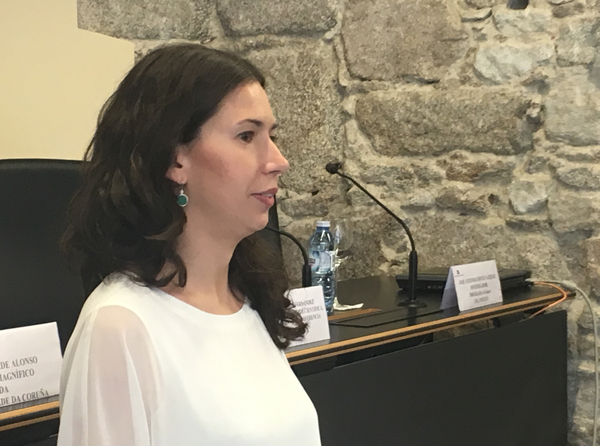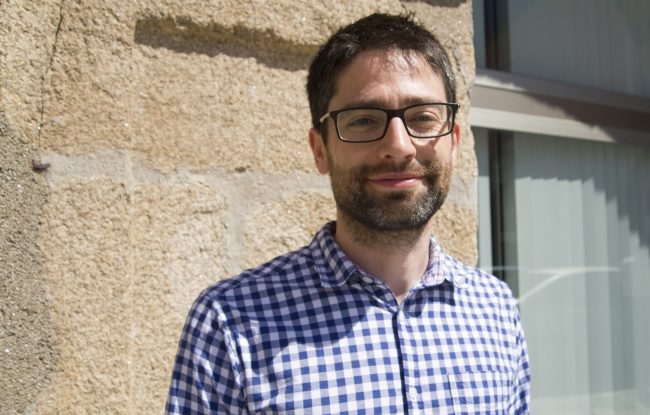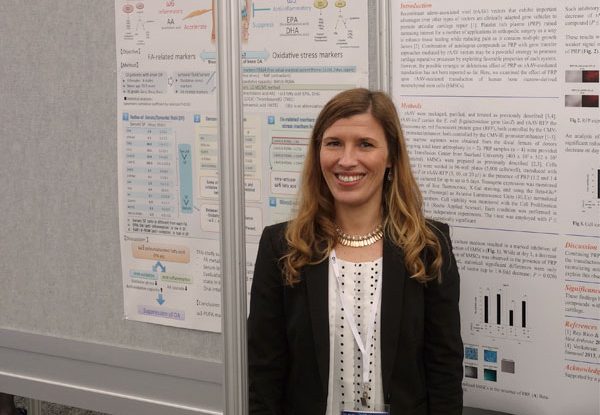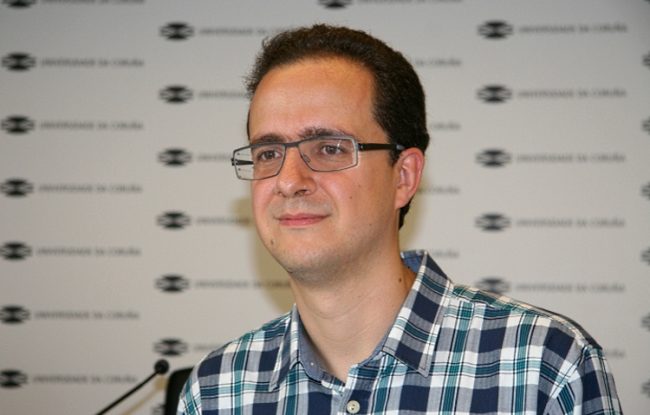Marín native Elena Pazos has a doctorate in Organic Chemistry from the University of Santiago de Compostela, which she obtained under the supervision of Professors José Luis Mascareñas and Eugenio Vázquez.
Between 2012 and 2014 she was part a research group led by Professor Samuel Strupp, who is widely known for developing self-assembling organic materials for use in energy and medicine, at Northwestern University (Chicago, EEUU), thanks to a grant from the Fundación Barrié.
Elena Pazos, who is currently carrying out her research activity at the Chemical Technology Centre of Catalonia (CTQC) in Tarragona, is one of two chosen researchers in the first call of the UDC-Inditex InTalent Programme. A total number of 122 requests of high scientific quality were put forward for the call.
We had a chat with Elena Pazos to find out about her line of research and she spoke to us about what it means to be one of two excellent researchers selected in the first call of the InTalent Programme.
1. At what moment in your career does the InTalent Programme come?
How do you think it will influence your future as a researcher?
In all honesty, the programme comes at just the right moment. I am about to finish my contract with the Chemical Technology Centre of Catalonia and I am at a stage of my career which is perfect for beginning to develop my own lines of research. I think that the InTalent programme is going to have a very positive influence on my future as it gives me the necessary tools to be independent and, when the programme finishes, I will be able to harvest the fruits of my work.
2. After working and learning with Professor Stupp and working in the Chemical Technology Centre of Catalonia, you are coming back to your own region. Is this the route you hoped to take in your research career? Had you thought about returning to Galicia at any time before applying to the InTalent programme?
It was definitely the route that I wanted to take. After gaining valuable knowledge in prestigious research groups I had the dream of gathering together all my knowledge and developing my own ideas. With regard to Galicia, I had thought about coming back, although due to the situation which research finds itself in at the moment I thought it would be thanks to a postdoctoral training programme rather than a programme like InTalent.

Elena Pazos, during the presentation of researchers InTalent 2016
3. Tell us about the lines of research you will be developing in the coming years at the UDC. What results do you hope to obtain from your research?
At the moment, I am thinking of two quite different lines of research. On one hand, I would like to develop intelligent sensors for degenerative diseases, molecules which emit light in the presence of certain disease markers thus allowing their detection. On the other hand, I would also like to work on the development of new bio-compatible nanomaterials which are capable of producing a specific effect in cells, such as promoting cellular regeneration or using them as vehicles for the controlled administration of drugs.
4. In the coming years, you will be part of the Advanced Sciences Research Centre (CICA) to work on your own lines of research. Are you familiar with the centre? What strengths do you think it has?
Yes, I have visited the centre on three separate occasions and have met with some of its research groups. The centre is very well-equipped, both with regard to facilities and the instruments they have for carrying out research. However, beyond the physical facilities, I am very excited about working with its research groups, who are carrying out some very interesting work. I feel it is very likely that synergies will be created with some of them.
InTalent comes at a stage of my career which is perfect for beginning to develop my own lines of research.
5. You have obtained private funding (Fundación Barrié), public funding (an FPC and an Incoming TECNIOspring Fellowship), and now mixed funding (UDC-Inditex InTalent Programme). What excellent science calls will you be applying to in the coming years?
At the moment, the most important one that I have in mind is the ERC Starting Grant. It is a very competitive call, but I will do my best to propose an innovative project which is of the level required to achieve funding.





